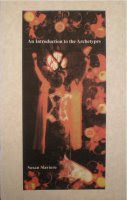I have always been interested in the perception of our bodies as public spaces, vulnerable to the gaze of others, where people construct a narrative that objectifies. Other people are forever trying to tell us who we are based on how we appear to them. We may have been raised to be polite, not to pry into private lives, but we are forever evaluating and commenting upon the bodies of others: their gender, weight, general appearance. No permission needed. This is especially true for women, but we do it to everyone.
There is nothing quite like the struggle with illness or chronic pain to make this visible.
Coworkers, relatives, even strangers feel comfortable commenting upon my body.
It's been a little less than two years since I developed some visible mobility problems, specifically, an awkward gait with a somewhat pronounced limp due to recurring problems with rheumatic disease. I've had people I barely know ask:
"What's wrong with you, anyway?"
"What's wrong with your leg?"
"Do you have XYZ condition?"
"Are you always going to be like this?"
"Are you EVER going to get better?"
Even more disconcerting are comments on whether or not you "look" sick. I've had coworkers tell me things like "You looked so unhealthy a few months ago, but look much better now." The intent is to be kind, but it seems so presumptive, this feeling that one is free to comment on how you look without being asked.
Much has been written about invisible illness, about feeling as though your experience is being dismissed because "you look so good."
But there is so much you don't see behind closed doors:
the days spent in pajamas because I am in too much pain to get dressed,
the overflowing shelves of prescription medications,
the ice packs and heating pads and long, painful physical therapy sessions.
I could go on and on, but you get the idea.
I have to live my life. I take painkillers. I wear makeup and style my hair and go out anyway, at least sometimes. Inevitably even those closest to me, like my my mother or mother-in-law, will then greet me with "Well, you certainly don't LOOK sick."
Hey, I didn't ask.
It gets old.
It's interesting to me because much of what I write deals the external narratives thrust upon us, our bodies. Sick bodies, female bodies are especially vulnerable. We aren't granted the agency to write our own stories. Our bodies are public spaces filled with the graffiti of external perceptions. It feels like vandalism, a violation. This is definitely a theme in CYBORGIA, as well as in more recent work.
This is the value of writing, in whatever form you choose: a poem, a novel, a blog entry. It's the opportunity to write your own story, to retrieve the power to construct the narrative being written on your body.
more scenes from #februllage
3 days ago








1 comment:
I'm so sorry about your pain. So glad you are telling your story!
Post a Comment